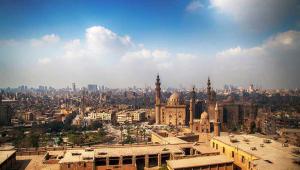An IMF team that visited Jordan last week agreed to release $385m under the Stand-By Arrangement approved by the fund’s executive board last August.
The payment will be made once the executive board endorses the team’s review of the Jordanian economy. According to Kristina Kostial, IMF mission chief for Jordan, this could happen ‘as early as April’.
She welcomed the Jordanian authorities’ ‘strong commitment to implementing their national programme despite an adverse external environment’.
In particular, the Central Bank of Jordan managed the temporary pressures on its reserves last autumn very well, leaving them at ‘comfortable’ levels.
The Jordanian economy grew by an estimated 2.8% last year and the outlook for 2013 was ‘good’, Kostial said. Gross domestic product was expected to increase by more than 3% this year as a result of rising government capital spending, higher domestic consumption and a recovery in exports.
At the same time, inflation, which had reached 7.2% at the end of 2012, was forecast to fall to around 3.2% by the end of the year.
Kostial added: ‘The authorities will continue their programme of reforms to keep the fiscal and external balances on a sustainable path. Consolidation will continue to be gradual so as to not jeopardise growth prospects and social stability.
‘The envisaged measures include an increase in government investment, and improvements in tax administration and public financial management. The authorities have also drafted a medium-term energy strategy to return the electricity company to cost recovery, on which they intend to consult with Parliament.’
Structural reforms were also planned to reduce unemployment and increase growth, she said.
The Stand-By Arrangement loan was agreed to help Jordan address the impact on the economy of regional upheaval in the Middle East. In particular, the revolution in Egypt interrupted the country’s supply of gas via the Arab Gas Pipeline, forcing the Jordanian government to pay more for energy imports and to increase wages and fuel subsidies.













